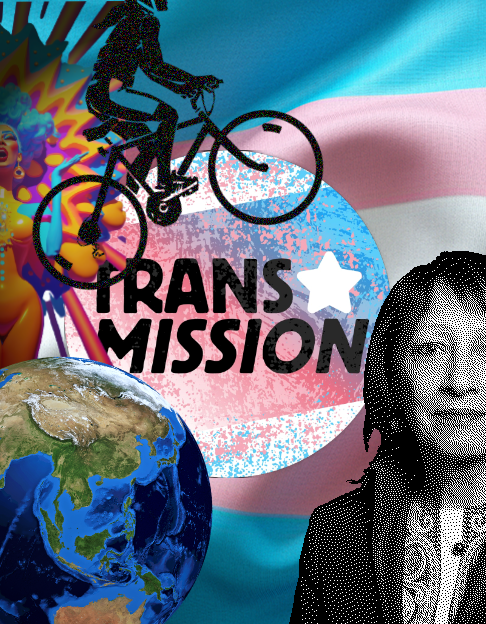Escalating Violence
Politicians and journalists have a variety of motivations for attacking transgender people, from the deeply held prejudices common to elite circles to an amoral instinct that sensation will sell papers and parties, as well as distract attention from where it is unwanted. Trans people, in their full humanity, are irrelevant to these motives, but they are foremost assailed by the consequences of such rhetoric, from harassment and assault to life-denying exclusions.
Most direct victims are trans, such as a woman videoed being beaten by three police officers in Milan, reported by Giulia Carbonaro for euronews. Sometimes cis people are hurt too. So it was for Marie MacGowan, an 86-year-old woman with dementia who was beaten and put in a wheelie bin in Ireland because a 30-year-old cis man thought she was trans, as reported by Jake McKee for PinkNews. Such violence is the inevitable result of the inculcation of hatred by “gender critical” ideology and broader transphobia, and every one of its adherents has responsibility.
But violence exists at various levels, not only in direct assaults. The denial of healthcare, the promotion of economic and social discrimination, and the fear inspired in trans people by a barrage of hostile rhetoric are all forms of violence, too—as Engels noted when he coined the term social murder. And again, the violence enacted in these spheres against trans people has commonalities with other forms of institutionalised violence, as exemplified in the powerful link made by Moira Donegan’s recent piece in the Guardian, which outlines the association between conservative attacks on abortion rights and trans healthcare:
“Both abortion bans and transition care bans further the same goal: to transform the social category of gender into an enforceable legal status, linked to the sexed body at birth and to prescribe a narrow and claustrophobic view of what that gender status must mean.”
We at A*CR agree with Donegan’s conclusion that ‘the anti-feminist movement is anti-trans, and the anti-trans panic is at its core anti-feminist.’ Although we would add that this implies that the anti-trans content in the same newspaper is also anti-feminist, and we wonder at the Guardian’s continued promotion of bigotry and hatred. Selling newspapers would appear to be of greater importance to that bastion of liberal values, than liberal values. We can only hope it proves a miscalculated trade-off.
“TERF Island”
The Equality and Human Rights Commission (EHRC) and its current head, Baroness Falkner of Margravine, have faced mounting pressure over internal problems of bullying and transphobia. But in a typical about-turn, and despite a high employee turnover, especially of LGBTQIA+ workers, serious allegations that Falkner referred to a trans woman as a “bloke in lipstick” and dozens of reports of discrimination and harassment, an attempt to investigate her (mis)leadership has been prevented by parliamentarians.

Sophie Perry wrote on the EHRC’s troubles for PinkNews, and the trans-run media group WhatTheTrans!? has broken down the issues with the organisation and its breakdown as a credible defender of marginalised communities, especially transgender people. With the organisation charged to promote the rights of trans people in the UK now acting as a vehicle to attack those rights, it is unsurprising to find numerous further examples of institutional discrimination in the UK week after week. This is how the UK has become known by the unflattering designation “TERF Island”.
Particularly egregious recently has been the poorly reasoned decision of British Cycling to exclude trans women from participating in the sport, citing evidence that is either clearly biased or wholly fails to back up their decision. (A common theme of attacks on trans people is a spurious evidence basis, as perpetrators of this bigotry know they will get gentle treatment from an endemically transphobic press.) Writing for Cyclist, the cisgender biker Charlotte Head accounts for why this choice reflects so poorly on the organisation and does nothing to protect cis women cyclists.
Reflecting similar sentiments to Head and the opinion column by Donegan, Ash Sarkar, writing for Novara Media, further strengthens this crucial insight that cis women do not materially benefit from persecuting trans people. Sarkar rightly notes that not only do cis women share a struggle with their trans sisters, but equally, in the majority, fully appreciate the need for such solidarity and reject more common bigotry (although hardly ubiquitous) among cisgender men:
“despite the prevailing narrative in trans-hostile media, more women than men are likely to accept a trans person’s chosen gender, and it’s men who are more likely to believe that allowing transgender women to use female facilities would put women at harm.”
Trans Life Beyond Violence
One of the subtler but more insidious consequences of the attacks on transgender people in recent times is the consequent reduction of trans peoples’ lives to either demonic caricatures or perpetual victims. It is crucial to recognise that just as we are often victims of political attacks, this must be balanced by understanding trans life in its rich, versatile diversity embodied in the everyday triumphs and failures of gender-diverse people. This takes place far beyond the violence and degradation of the current moment.
Writing for The Conversation, Derek P. Siegel explores this subject precisely: the need to emphasise community care, trans fulfilment in various relationships, trans joy and gender euphoria (an inversion of the experience of gender dysphoria, the experience of a mismatch between identity and embodiment). These are crucial components of what it is to be trans, and without these aspects being appreciated, it becomes too easy to forget that human flourishing is the goal of liberatory struggle.
In the previous Trans*Mission weekly roundup, we discussed the interaction of the US anti-trans culture war with contemporary India. Ariba for Indian Express looks more at the specificity of trans lives in India, focussing on the Hijra kinship system, the place of gender-diverse people in Hindu mythology, and the origins of contemporary anti-trans hostility in the values imposed by British colonialism. Also in South Asia, a census undercount of people belonging to the third gender khawaja sira community of Sindh, Pakistan, is the point of departure for Oonib Azam’s examination of this threatened community for Geo News.
It is crucial not to collapse and smother differences in examinations of how people from various places and times have navigated gender, especially when doing so might erase colonial legacies. Matthew Rozsa’s Salon deep dive into transgender history shows that it is possible to find examples of gender diversity everywhere, focusing on a short story from the nineteenth-century United States. Rozsa elaborates on the complexity of trans existence, including how historical progress is not a uniform process but a series of contestations shaped by all of the nuances of human life.
Marxism seeks a more human society, so such accounts should be of paramount interest. In the hopeful strivings of humanity’s past, which the philosopher Ernst Bloch called the Not-Yet-Conscious, we find intimations of a future beyond the confines of class society and, therefore, the senseless, cruel violence’s of strict gender binaries.
A*CR Activities
Members of A*CR attended the latest in a series of anti-fascist counter demos defending drag time story hour at Honor Oak pub in Lewisham. According to reports, the anti-drag, anti-trans fascists numbered just under two dozen individuals cowering behind their friends in the police, while around 200 antifascists were in attendance. Socialists of worth have consistently recognised the paramount importance of confronting the far right and defending its targets and that only through such grassroots confrontation can street fascism be kept in check.
–
Want to participate in the fightback? Join Anti*Capitalist Resistance and become a member of our Trans*Mission group!
Also, if you know a story you want to appear in next week’s roundup, please email it to us.
Art (55) Book Review (127) Books (114) Capitalism (68) China (81) Climate Emergency (99) Conservative Government (90) Conservative Party (45) COVID-19 (46) EcoSocialism (60) Elections (85) Europe (46) Fascism (64) Film (48) Film Review (69) France (72) Gaza (63) Imperialism (101) Israel (131) Italy (46) Keir Starmer (57) Labour Party (116) Long Read (42) Marxism (49) Marxist Theory (47) Palestine (186) pandemic (78) Protest (154) Russia (346) Solidarity (153) Statement (50) Trade Unionism (144) Ukraine (352) United States of America (140) War (371)
Latest Articles
- Ukraine UnbrokenDave Kellaway reviews Ukraine Unbroken, five plays about the history of the Ukrainian conflcit
- Solidarity with the Ukrainian peopleStatement approved by the International Committee (IC) of the Fourth International on 25 February 2026.
- US/Israel hands off Iran! No liberation through US bombs!Statement of the Executive Bureau of the Fourth International 28 February 2026
- Your Party’s New Leadership – The CEC Election And The Likely FalloutWhat are the possible consequences of Your Party’s recent CEC elections, Joseph Healy looks at this in the current political context.
- Earthquake in Gorton, tremors in Downing st.Dave Kellaway makes an initial analysis of the Green victory in Gorton and Denton






